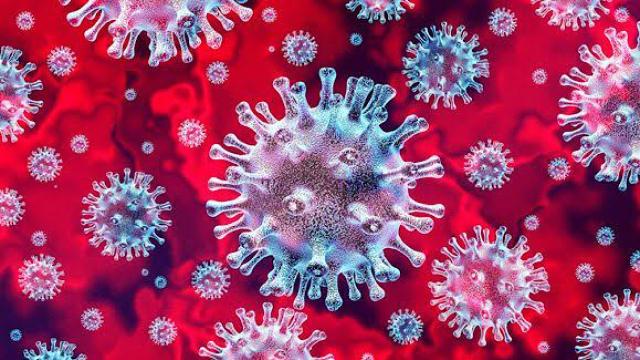Coronavirus is a group of viruses that infect the respiratory system. The severity of infection ranges from asymptomatic to pneumonia. These viruses infect animals and a few have crossed over to infect humans.
COVID-19 is spreading all over the world, in an accelerated way, where deaths are announced on a daily basis, whether in China or other countries such as America, which has recorded over 12,000 deaths so far this April 8.
The rapid spread of the virus has terrorized many and made them think of ways to protect themselves from this pandemic, especially since the carrier of the disease sometimes doesn't even show symptoms.
Specialists, all over the world, are on constant alert to look for symptoms of the virus in attempts to prevent it from spreading.
Protect yourself :
1. You need to wash your hands frequently with soap and water, this is very important - especially in public toilets, while traveling, visiting hospitals, or eating in restaurants.
2. Avoid touching your face with your hands after you touch dirty surfaces.
3. Wear a surgical mask when visiting patients with the disease. Studies show that these masks reduce the risk of virus transmission but do not prevent them completely, and it is best to wear masks such as the N95. The N95 masks prevent 95 percent of the particles from passing through. However, the N95 type masks are only available for healthcare workers at this time and supplies are scarce.
4. Maintain social distancing of at least six feet.
5. Wear gloves: with the increasing numbers of COVID-19 the authorities in Wuhan closed public transportation, and the rest of the world did the same as well. The risk of catching this virus still exists, but there is no doubt that public transportation is infected with germs and viruses, and it is better to use a special gloves when using transportation. Note that you should stay at home, that’s the safest thing to do right now!
6. Strengthening the immune system by choosing healthy food and drinks: replace immune-harmful drinks such as alcohol, soft drinks (regular and diet), and energy drinks with lots of pure, fresh water. A strong immune system can protect you against many common diseases.
7. See a doctor: if you are in close contact with someone who has the disease and has a fever, or contact the ER and stay home because it could be a regular cold or fever. Keep in mind that the primary symptoms of the COVID-19 virus are similar to the common cold: fever, coughing, and shortness of breath, as the disease progresses, patients may develop pneumonia.
You should know the following, according to WHO (World Health Organization) :
* People of all ages can become infected with COVID-19. It appears that the elderly and people with pre-existing conditions (such as asthma, diabetes and heart disease) are more likely to develop severe cases in the event of infection with the virus. The World Health Organization recommends people of all ages to take steps to protect themselves from the virus, such as social distancing, good hand washing.
* Antibiotics do not destroy viruses, they only kill germs. COVID-2019 is a virus, so antibiotics should not be used to prevent or treat it. However, if you are admitted to hospital for the emerging COVID-19 virus, you may be given antibiotics for the possibility of an accompanying bacterial infection.
* Spraying the body with alcohol or chlorine will not eliminate viruses that have already entered your body. It may even be harmful to clothing or mucous membranes (such as the eyes and mouth). However, both alcohol and chlorine may be beneficial for the disinfection of surfaces but they should be used according to appropriate recommendations.
* Ultraviolet lights should not be used to sterilize hands or any other parts of the skin because these rays can cause allergic reactions to the skin.
* Facial masks, including flat medical masks or even N95 masks should not be reused. If you have been in contact with a person who is infected with a COVID-19 or another respiratory infection, the front of the mask is already contaminated. The mask should be removed without touching the exposed front of it and you should properly dispose of it. After you remove the mask rub your hands with an alcohol disinfectant or wash them with soap and water.
* Avoid getting too close to people. Keep at least 1 meter (3 feet) between you and anyone coughing or sneezing. Why? When a person coughs or sneezes, small liquid droplets spread around, and those droplets may contain the virus and you could be infected if you are very close to that person.
Other procedures experts recommend
* Avoid live or dead animals and do not eat raw meat.
* Avoid any contact with patients.
* Wash your hands thoroughly for at least 20 seconds, and use hand sanitizer.
* Older people and travelers with any health problems may be at risk of developing more severe diseases, and they should consult with a health care provider.
If you have been around infected persons and you have a fever, are coughing or having breathing difficulties, you should:
1. Self-quarantine. Avoid contact with others.
2. Do not travel during illness.
3. Cover your mouth and nose with a tissue when you cough or sneeze.
4. Try to stay calm, fit and healthy.
Hopefully, by the end of this article, you have learned and educated yourself.
![The CDC recommends that you scrub your hands for at least 20 seconds. [Image Source: Couleur/Pixabay] The CDC recommends that you scrub your hands for at least 20 seconds. [Image Source: Couleur/Pixabay]](https://staticr1.blastingcdncf.com/media/photogallery/2020/4/5/660x290/b_502x220x82/the-cdc-recommends-that-you-scrub-your-hands-for-at-least-20-seconds-image-source-couleurpixabay_2434015.jpg)



